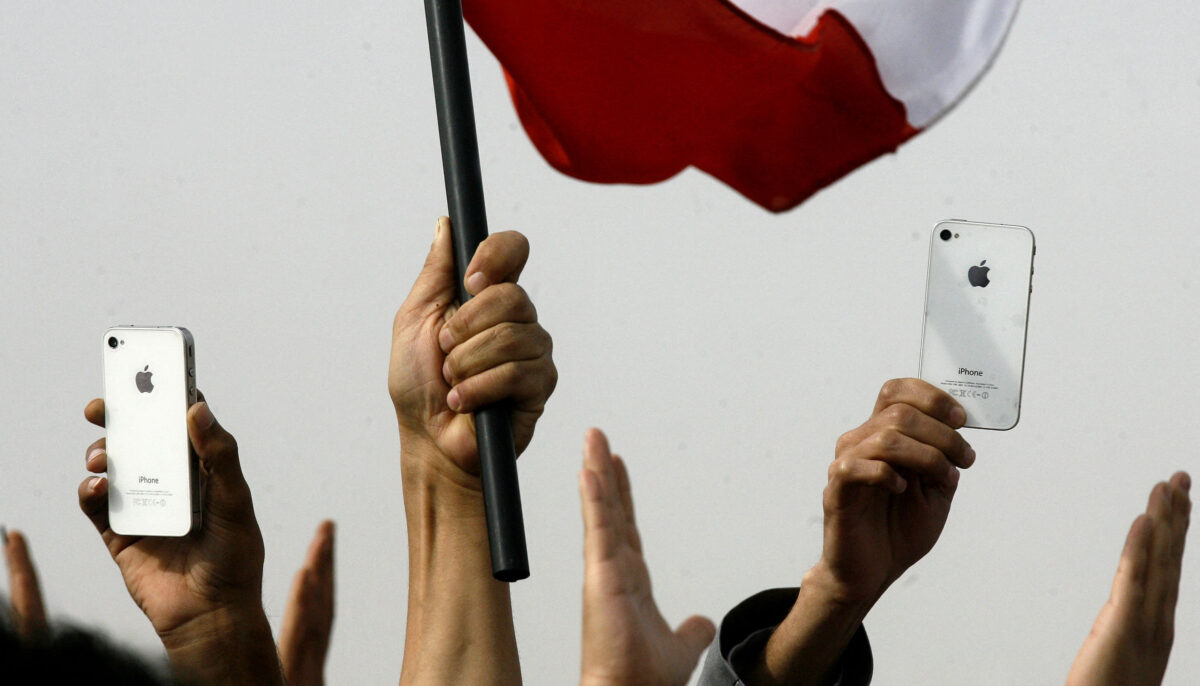Following the waves of protests in the 2010s, both in the region and throughout the world, from Africa to South America and Europe, Kuwaiti authorities decided to take matters into their own hands by attempting to regulate people’s activities on the internet.
The generic term “cybercrime” was used to justify a legal framework that sets the terms, definitions, and sanctions of crimes committed online. A critical examination of the Kuwaiti Cybercrime Law (2015) reveals intentional measures that deliberately undermine democratic principles.
While the law itself does not create new threats to freedom of expression, its implementation extends existing laws into the digital realm, potentially jeopardizing individual online freedoms.
Granted that the Cybercrime Law criminalizes actions such as hacking electronic systems, unauthorized retrieval of personal data, fraud, the dissemination of pornography, and involvement in human trafficking via the internet, it also enforces nationwide censorship that is then transferred to the cyber world using the Press and Publications Law (Law No 3/2006).
Law No. 3 regulates the publication of printed and electronic media in Kuwait. Some provisions of the law prohibit criticizing the monarchy and content that, according to the law itself, “violates public order, morals, or national security.” The law grants the government the power to block websites and other media that violate these provisions while issuing prison sentences and fines for individuals violating these provisions.
In fact, Articles 6 and 7 of the Cybercrime Law refer to Articles 27 and 28 of the Press and Publications Law, and the latter two refer to Articles 19, 20, and 21 of the same statute.
Article 6 of the Cybercrime law states that the penalty specified in clauses (1), (2) and (3) of Article (27) of the Printing and Publishing Law shall be implemented on whoever commits the same violations through any means of information technology.
According to the Press and Publications law that this article refers to, and which the translation of is provided by the Doha Centre for Media Freedom, articles 19, 20, and 21 forbid the mockery and defamation of religion, any criticism of the country’s Emir without authorization of Emiri Diwan, criticizing the country’s constitution, political figures, representatives, or divulging state secrets. Articles 27 and 28 of the same statute criminalize breaching these laws with fines and prison sentences.
While the Cybercrime Law being applied in the digital space is not creating new restrictions on freedom of speech, it still perpetuates the norm that involves violating these same rights in all areas of life.
According to Human Rights Watch, the law came out when Kuwait was prosecuting many opposition politicians, activists, journalists, and anyone expressing dissent against the government.
One example of the Cybercrime law being applied is the case of the Kuwaiti citizen Salman Al-Khalidi, who criticized the Saudi government and authorities on his social media.
He was eventually detained and received a five-year prison sentence following a verdict, reportedly claiming that his motive for the crimes was “insulting the Kingdom of Saudi Arabia” and “publishing false news.” This demonstrates that the Kuwaiti Cybercrime law applies not only to criticizing the Emir or state politics but also to other countries closely allied to Kuwait.
A more recent example of the abuses of the Cybercrime law is the case of Kuwaiti human rights defenders Abdulhakim Al-Fadhli and Hamid Jameel. They were summoned by Kuwait’s Electronic and Cybercrime Combating Department (ECCCD) for allegations of creating a fake Twitter account to attack a public official online and organizing a peaceful protest at a government office.
While the two are no strangers to such summonings and detainings, it was still a surprise when they went through a full day of procedures and were released on a bail of 200 dinars each (approx. USD 650).
The Kuwaiti Cybercrime law leaves little room for doubt that it will not be used to censor people on social media. By vaguely defining what is acceptable content for both traditional and online platforms, these regulations threaten freedom of speech, particularly impacting vulnerable and marginalized groups.
The statement released by the Undersecretary of Press, Publishing, and Publications at the Ministry of Information, Lafi Al-Subaie, involved a stark reminder of the consequences if citizens violated these laws. Kuwait must abolish these provisions encouraging censorship in the Printing and Press law as well as in the Cybercrime law, allowing Kuwaitis to freely express themselves online, without fear of repercussion or prosecution.



